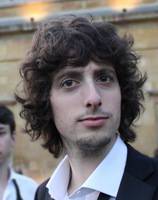Day 1 – Fundamentals
Session 1 - Introduction to Quantum Computing
High-level overview of the objectives of quantum computing, inclusive of existing applications. Overview of quantum computing principles, both with regards to traditional algorithms and with a focus on recent developments. Overview of existing quantum computing architectures: pros and cons, current state of development, near-term prospects. Overview of (some) quantum computing APIs: IBM Qiskit, Amazon Braket, D-Wave Ocean, Rigetti Forest, TensorFlow Quantum and PennyLane.
Session 2 - Digital Quantum Circuits
Introduction to the quantum circuit model for digital quantum computers. The Bloch sphere picture and single-qubit gates. Controlled single-qubit gates and other two-qubit gates. Clifford circuits and the stabilizer formalism. Three-qubit gates, T-gates and universal quantum computing. Measurements, expectation values and tomography.
Session 3 - Digital Quantum Computers
Entanglement, uncertainty and mixed-state formalism. Introduction to super-conducting quantum computing architectures. Noise models for super-conducting quantum computing architectures. Compilation and gate synthesis for topologically-constrained architectures. Noisy simulations and circuit execution on IBMQ quantum computers. Basics of quantum computer benchmarking.
Session 4 - Noiseless Quantum Algorithms
The first practical session is focussed on the implementation of some simple “traditional” quantum algorithms, to get hands-on experience with the quantum circuit model. Bell-basis states: preparation, measurements and tomography. Simulating the quantum teleportation protocol. Simulating the super- dense coding protocol. Gate teleportation and measurement-based quantum computation.
Session 5 - Benchmarking Real-World Devices
The second practical session is focussed on the benchmarking of IBMQ devices, to better understand the practical limitations of near-term quantum computation. The swap test: a case-study on gate synthesis, circuit depth and the effects of noise. Benchmarking of physical qubits: estimation of T1 and T2 times. Benchmarking of digital quantum computers: the quantum volume metric.
Day 2 - Applications
Session 6 - Variational Quantum Circuits
Variational quantum circuits, classification tasks and function approximation tasks. Understanding the power of variational quantum circuits: encoding strategies and response functions. Exact gradient descent, the parameter-shift rule, quantum natural gradient descent. Stochastic gradient de- scent, SPSA, the stochastic parameter-shift rule. Random circuits, barren plateaus and mitigation strategies.
Session 7 - Variational Quantum Solvers
The quantum Fourier transform and quantum phase estimation. Variational solvers: the HHL algorithm and the Variational Quantum Linear Solver (VQLS). Quantum chemistry simulations using the Variational Quantum Eigensolver (VQE). A brief introduction to variational quantum algorithms for non-linear problems, with a focus on computational fluid dynamics.
Session 8 - Quantum Approximate Optimization
The quantum approximate optimization algorithm (QAOA): solving constraint satisfaction problems on digital quantum computers. Binary quadratic models (BQM) and quadratic unconstrained binary optimization models (QUBO): solving constraint satisfaction problems using D-Wave quantum annealers.
Session 9 - Quantum Machine Learning
The third practical session is focussed on using variational quantum circuits for classification and function approximation tasks. Variational quantum classifiers for categorical data. Function approximation by Fourier transform. Hybrid quantum-classical convolutional neural networks for image classification.
Session 10 - Quadratic Hamiltonians
The fourth practical session is focussed on using variational quantum circuits to solve problems that can be modelled by quadratic Hamiltonians. Solving constraint satisfaction problems using QAOA. Estimating the ground-state energy of hydrogen using VQE. Ising Hamiltonian approximation using quantum graph recurrent neural networks.

